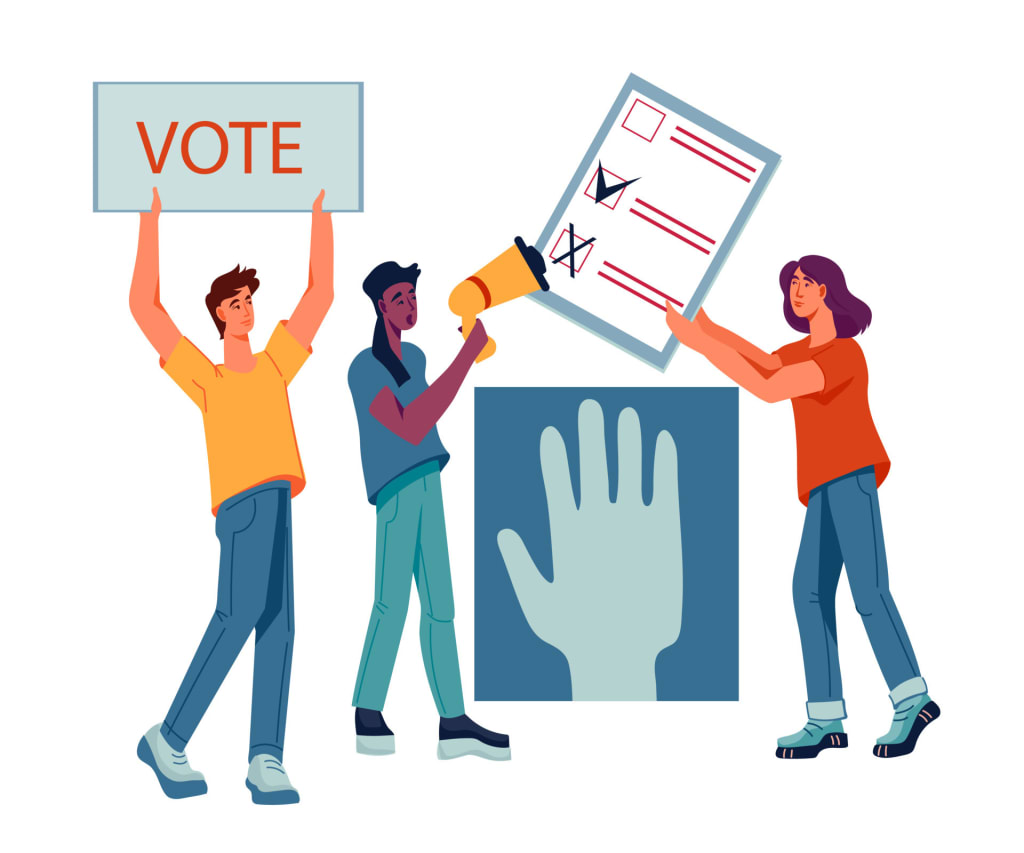Politics and Its Impact on Society: Shaping the Present and Future
This subject encapsulates the essence of the article, emphasising the role of digital technologies in shaping political engagement and the complexities involved in navigating the opportunities and challenges of active citizenship in the digital age. It highlights the transformative potential of digital platforms for citizen participation, online activism, and political discourse, while acknowledging the risks associated with disinformation, unequal access, and manipulation. The subject underscores the importance of understanding the dynamics of political engagement in the digital realm to promote informed and empowered citizenship, foster inclusive spaces for dialogue, and safeguard the integrity of democratic processes. It serves as a call to action for individuals and societies to navigate the digital landscape responsibly, embrace digital tools for political engagement, and strive for a more participatory and democratic society.

Introduction:
Politics, the art and science of governance, plays a pivotal role in shaping the fabric of society. From influencing policies and decision-making to determining the allocation of resources and power, politics impacts every aspect of our lives. This article explores the multifaceted relationship between politics and society, examining how political systems, ideologies, and actions can have far-reaching effects on the well-being, values, and aspirations of individuals and communities.
The Power of Political Systems:
Political systems, such as democracies, autocracies, and hybrid regimes, define the rules and institutions by which a society is governed. This section delves into the impact of different political systems on individual freedoms, representation, accountability, and socio-economic development. It explores the benefits and challenges associated with various systems and their implications for societal progress.
Political Ideologies and Social Transformation:
Political ideologies shape the direction and goals of a society. This section examines the influence of ideologies such as liberalism, conservatism, socialism, and nationalism on social policies, economic systems, and individual rights. It highlights how ideologies can mobilise and galvanise communities, leading to social movements and transformative changes in society.
Political Leadership and Decision-Making:
Political leaders hold the responsibility of making decisions that impact society. This section explores the role of leadership in shaping public policies, promoting social justice, and addressing societal challenges. It examines the qualities and ethics of effective leadership and the consequences of poor governance on societal well-being.
Politics and Social Justice:
Politics and social justice are intrinsically linked. This section explores how political actions can address systemic inequalities, promote inclusivity, and protect the rights of marginalised communities. It examines the role of activism, advocacy, and policy reforms in advancing social justice and fostering a more equitable society.
Political Polarisation and Divisions:
Politics can sometimes lead to polarisation and divisions within society. This section explores the causes and consequences of political polarisation, including the rise of populism, identity politics, and ideological fragmentation. It discusses the challenges posed by polarised societies and the importance of fostering dialogue, empathy, and understanding to bridge divides.
The Media's Role in Political Discourse:
Media plays a crucial role in shaping public opinion and influencing political discourse. This section examines the impact of media bias, misinformation, and the rise of social media on political narratives and public perception. It highlights the need for media literacy, independent journalism, and responsible reporting to ensure a well-informed citizenry and a healthy democratic process.
Political Engagement and Citizen Participation:
The engagement of citizens in the political process is vital for a thriving society. This section explores the importance of voter participation, civic education, and grassroots activism in shaping political outcomes. It emphasises the power of collective action, community organising, and citizen-led initiatives in driving social change.
Harnessing the Power of Online Activism (Word count: 175)
This section delves into the ways in which digital platforms have empowered individuals and communities to engage in political activism and advocacy. It discusses the effectiveness of online petitions, social media campaigns, and virtual protests in amplifying voices, mobilizing support, and demanding political change. It also explores the potential for digital platforms to facilitate global solidarity and transnational movements.
The Role of Digital Media in Political Information:
This section examines the impact of digital media on political information consumption and its influence on shaping public opinion. It explores the benefits and drawbacks of online news sources, the spread of misinformation, filter bubbles, and the importance of critical thinking skills and media literacy in navigating the digital media landscape.
Enhancing Political Dialogue and Participation:
Digital technologies provide new avenues for citizens to engage in political dialogue and participate in decision-making processes. This section explores the potential for online forums, virtual town halls, and participatory platforms to foster inclusive and accessible spaces for citizens to voice their concerns, provide input, and influence policy-making.
Conclusion:
Politics permeates every aspect of society, influencing the values, opportunities, and trajectory of communities. Understanding the impact of political systems, ideologies, leadership, and citizen engagement is crucial for shaping a just, inclusive, and prosperous society. By promoting ethical leadership, fostering political awareness, and encouraging active citizenship, we can collectively strive for a political landscape that aligns with the aspirations and well-being of all members of society.






Comments
There are no comments for this story
Be the first to respond and start the conversation.